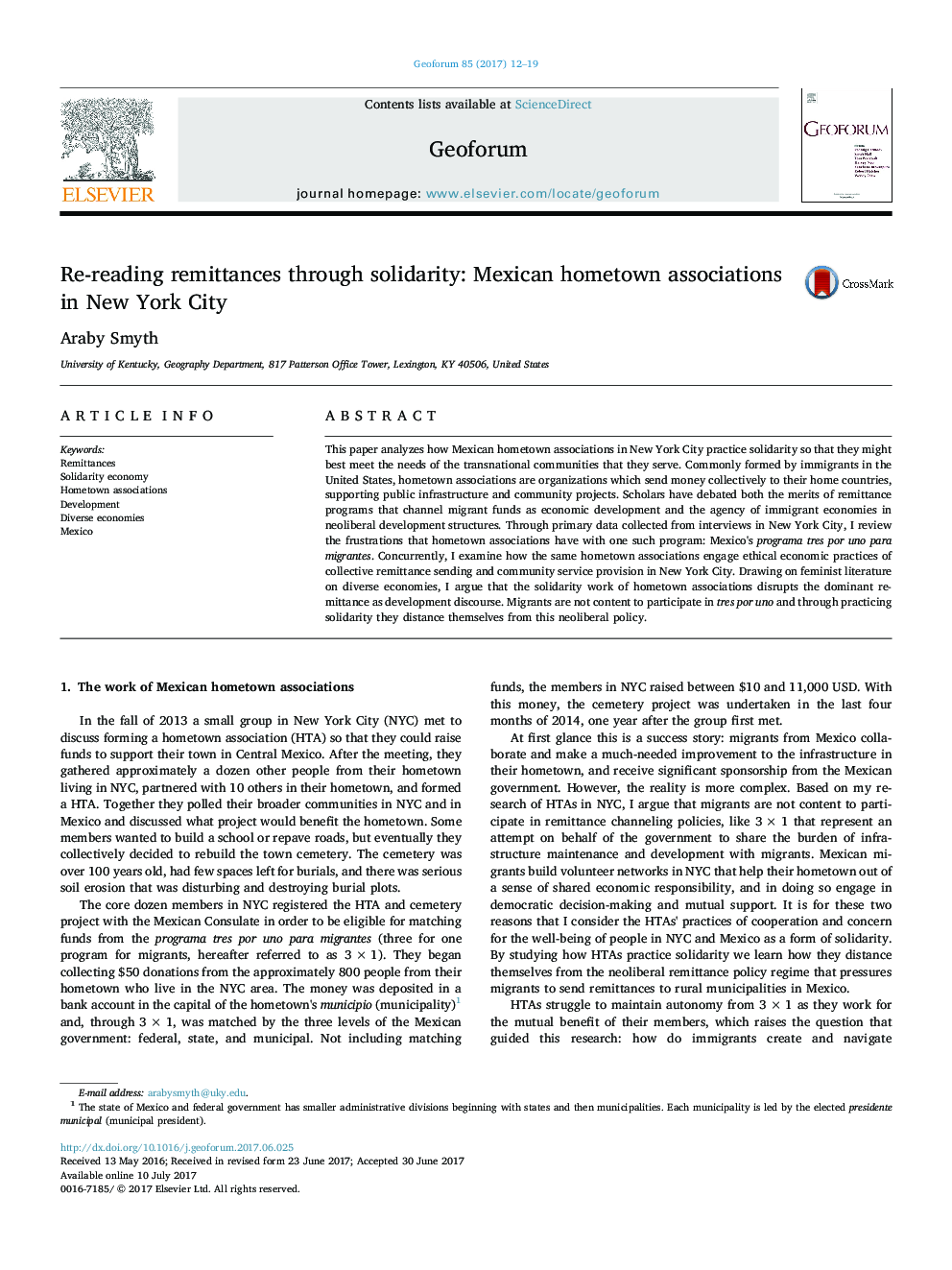| Article ID | Journal | Published Year | Pages | File Type |
|---|---|---|---|---|
| 5073163 | Geoforum | 2017 | 8 Pages |
This paper analyzes how Mexican hometown associations in New York City practice solidarity so that they might best meet the needs of the transnational communities that they serve. Commonly formed by immigrants in the United States, hometown associations are organizations which send money collectively to their home countries, supporting public infrastructure and community projects. Scholars have debated both the merits of remittance programs that channel migrant funds as economic development and the agency of immigrant economies in neoliberal development structures. Through primary data collected from interviews in New York City, I review the frustrations that hometown associations have with one such program: Mexico's programa tres por uno para migrantes. Concurrently, I examine how the same hometown associations engage ethical economic practices of collective remittance sending and community service provision in New York City. Drawing on feminist literature on diverse economies, I argue that the solidarity work of hometown associations disrupts the dominant remittance as development discourse. Migrants are not content to participate in tres por uno and through practicing solidarity they distance themselves from this neoliberal policy.
